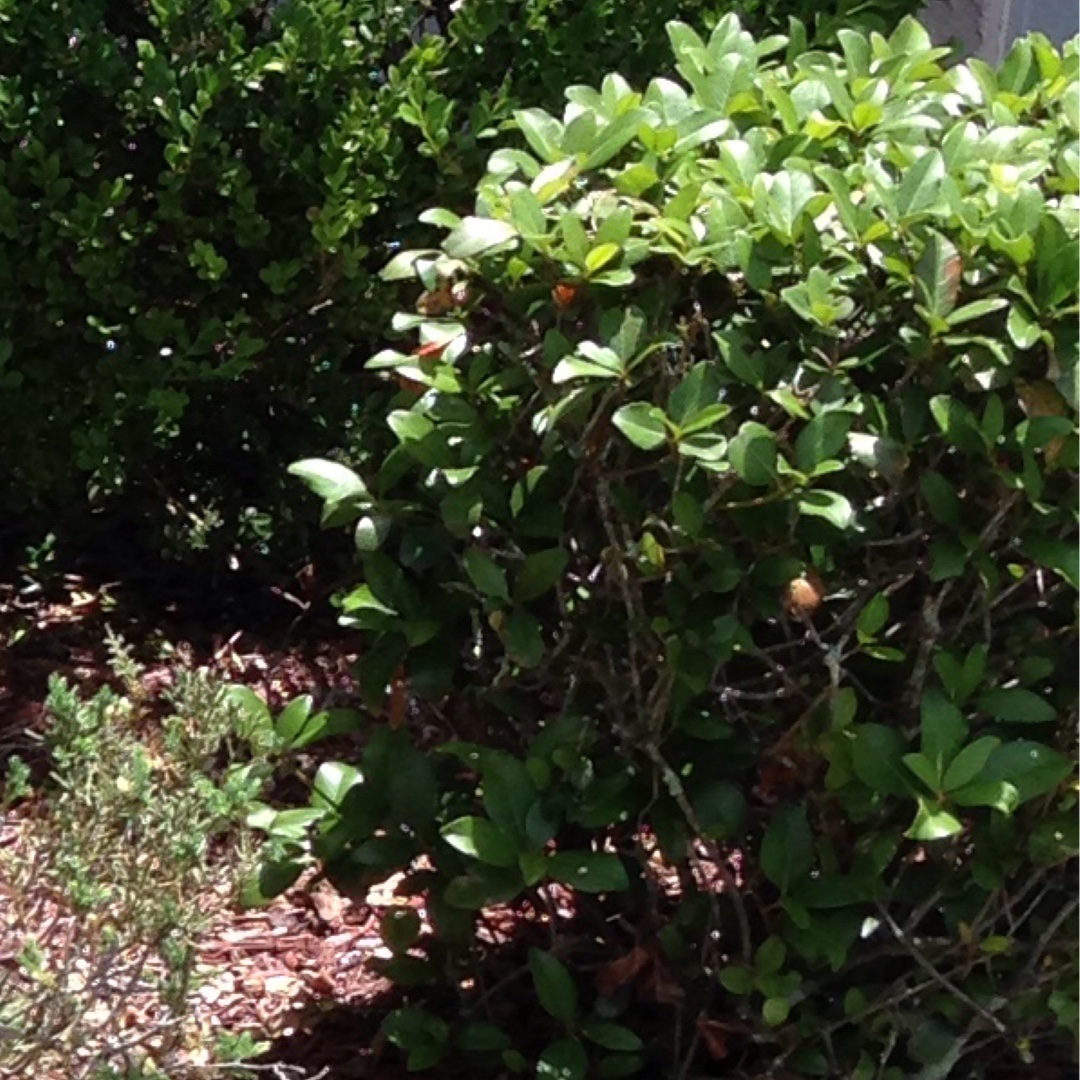
Rhaphiolepis indica
Indian Hawthorn
Rhaphiolepis indica is grown for its decorative pink or white flowers, and is popular in bonsai culture. The fruit is edible when cooked. It is a small, slow-growing shrub perfect for sunny locations. It’s easy to care for because it keeps a neat, rounded shape naturally, without the need for pruning. Large, loose clusters of fragrant, pink or white flowers bloom In spring. The flowers are followed by small blue berries that attract wildlife. Indian hawthorn plants grow well in containers as well as coastal locations with salty soil.
Contributed by @joy4todd
-
Full sun to partial shade
-
Very little water
-
Frost Hardy: 23F (-5°C)
-
Moist and free draining
Common name
Indian Hawthorn
Latin name
Rhaphiolepis indica
type
Evergreen Shrub
family
Rosaceae
ph
5.0 - 7.5 Acid - Neutral
Plant & bloom calendar
-
Best time to plant
-
When the plant will bloom
full grown dimensions
 1.80 M
1.50 M
1.80 M
1.50 M
Rhaphiolepis indica
Rhaphiolepis indica is grown for its decorative pink or white flowers, and is popular in bonsai culture. The fruit is edible when cooked. It is a small, slow-growing shrub perfect for sunny locations. It’s easy to care for because it keeps a neat, rounded shape naturally, without the need for pruning. Large, loose clusters of fragrant, pink or white flowers bloom In spring. The flowers are followed by small blue berries that attract wildlife. Indian hawthorn plants grow well in containers as well as coastal locations with salty soil.
Planting young plants
From Early Spring TO Early Spring
Indian Hawthorn grows best in full sun but will tolerate afternoon shade as well. If it receives too much shade, it will cause the shrub to lose its neat, compact growth habit. It isn’t fussy about the soil, but it’s a good idea to work in some compost before planting if the soil is heavy clay or sand. It can tolerate salt spray and salty soil, so they are ideal for seaside planting.
Propagating by cuttings
From Late Summer TO Early Autumn
Take semi- ripe cuttings from this season's growth in Autumn. Cut neatly, just below a leaf node, a 5" approx. piece of a healthy shoot that has soft growth at the tip. pinch out the growing tip, and cut off the bottom leaves. Dip the bottom of the cutting in hormone rooting powder, and carefully place in a pot of cutting compost with the leaves just above the level of the compost. Water, label, cover with a polythene bag, and place in a warm, bright place, out of direct sunlight. Take the polythene bag off periodically for a while for ventilation (at least twice a week)
Flowering
From Late Winter TO Early Spring
Indian hawthorn flowers are white or pink, and appear in loose clusters in late Winter or Spring, and these flowers are often followed by small purple fruits that are attractive to birds. There is sometimes a second blooming in Autumn - less impressive than Spring blooming.

























